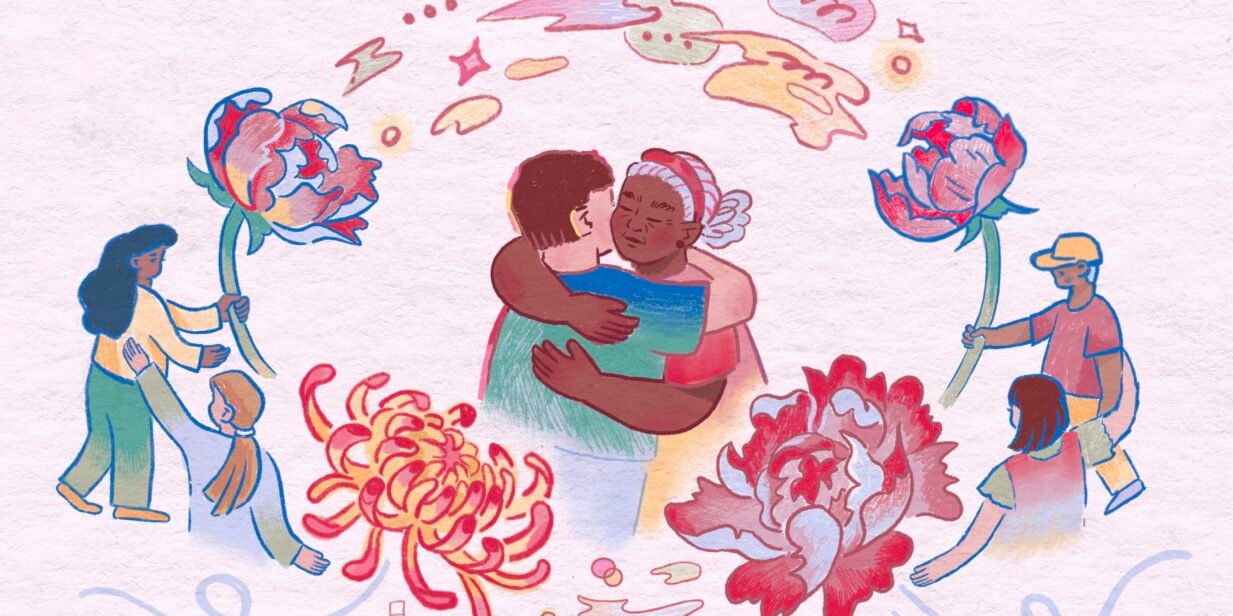Dear Tara…
I’m a straight woman, and I married my partner four years ago. Last month, they came out as non-binary, and now I find myself in a queer relationship. I love them and my feelings towards them haven’t changed, but it’s left me confused about my own identity, now that I am married to someone who is not straight. Am I being selfish?
I don’t think this makes you selfish at all. In fact, considering your identity in all of this seems the responsible and thoughtful thing to do. So often I hear about the opposite. Specifically, straight identifying, cisgender men who may refuse to consider their own queerness when they find themselves attracted to or in relationships with AFAB (assigned female at birth) non-binary folks. To me, that reads as selfish. Likely rooted in homophobia or toxic masculinity, this refusal is about protecting an image rather than respecting a partner. It allows someone to stay comfortable while invalidating the identity of a person they supposedly care about.
In your case, what I see is someone who’s willing to ask honest questions, be present with their feelings, and show up for their partner in meaningful ways. That’s something to feel proud of.
In regards to your confusion, identities don’t have to be simple, neat or black and white. If straight still feels like an affirming or accurate term to you, use it. It’s language and it’s yours to decide what to do with. If you’re curious about other labels, or want to explore what queerness might mean for you now, that’s also valid. Try to limit worries about how others may feel about changes on your part, take your time.
It is entirely possible to be a crucial support in your partner’s self discovery process, while simultaneously nurturing your own feelings. Here are some tips on balancing both of these priorities:
Carve out space for both of your voices, don’t merge them
Allow for each person’s time to speak and share to be their own. Perhaps a conversation about your partner’s feelings about their identity might not be the time to bring up your own. Instead, these are instances where it’s good to ask thoughtful questions, and listen actively.
It is your responsibility to find appropriate times to bring up what’s coming up for you. Setting the stage for and initiating a serious conversation is a lot of pressure, let alone one about your relationship to someone else’s identity. Though conversations like these are prime for emotion, the benefits of being transparent with your partner are beyond.
You’re a team, you love each other, that’s an environment where honesty and authenticity thrive. Who knows, they might have incredible insights on what it means for you to now find yourself in a queer relationship. They know you well, they may have been thinking about this too. If you’re unsure how to begin, try something like: “I want to make sure I’m supporting you, but I’m also processing what this means for me. Can we talk about that sometime?”
Find other places to process
Sometimes the best way to show up in a relationship is to take care of your own emotional needs outside of it. Not every emotion needs to be shared with your partner, and that doesn’t make your feelings less important. Find additional outlets. This could be talking to a therapist, journaling, meditating, or spending time with a trusted friend.
If feelings like grief or nostalgia arise, treat them with care
These might not be the specific feelings you want to share with your partner, or you may want to consider your words carefully and be intentional if you do, but that doesn’t mean you should feel guilty about them. Transitions are typically complex, even messy. Getting mad at yourself for simply going through the motions, feeling what you feel and what demands to be felt, won’t serve yourself or your partner.
And finally, preserve your routines during times of change
The little things, day to day, might bring a lot of peace. Cook dinner together. Go on walks. Watch your favourite shows. Let the familiar hold you while the rest adjusts.
You’re experiencing a change too, and you clearly love this person deeply to even consider whether or not a question like this is selfish to begin with. And while you’re not being turned queer overnight, the “answer” to said question would look different for any given person in your position. Some may continue to consider themselves straight, others may not.
What can you do?
- Queer organisations like PFLAG and Advocates for Trans Equality have created guides on supporting loved ones through transitions
- Queer mental health resources are yours to access too, as they’ll likely have a better, more well rounded approach to your concerns. For folks in the US, on Psychology Today you can filter for LGBTQ friendly therapists. The Trevor Project: 866-488-7386. The Gay, Lesbian, Bisexual and Transgender National Hotline: 888-843-4564.
- Here are some first-hand accounts of folks going through the same thing as you: What Happens When the Person You’re Dating Comes Out as Non-Binary
- Read previous Sexpert Confessional advice columns HERE


